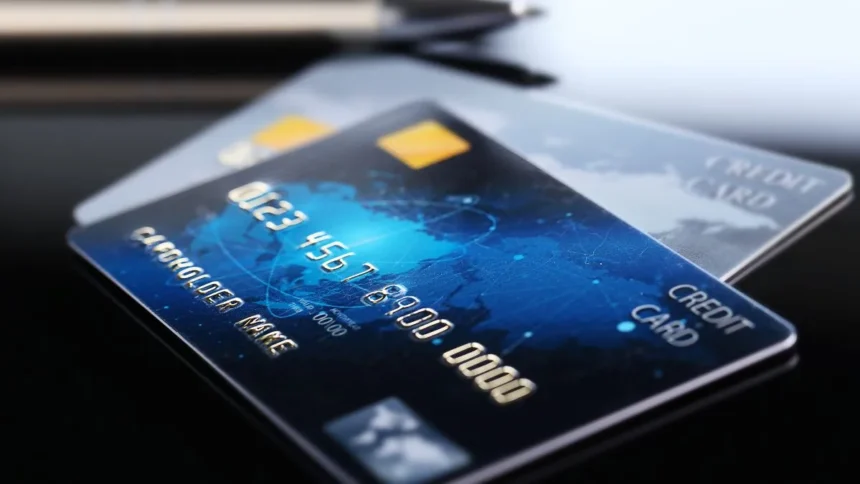What is a Credit Score?
A credit score is a three-digit number representing your creditworthiness. It plays a critical role in determining your ability to secure loans, credit cards, or even rental agreements. Credit scores typically range from 300 to 850, with higher scores indicating better financial reliability.
Why Credit Scores Matter
1. Access to Credit and Loans
Lenders use credit scores to assess the risk of lending money. A higher score often results in better loan terms, including lower interest rates.
2. Lower Insurance Premiums
In some cases, insurers use credit scores to determine premiums. A good score could save you money on auto or homeowners insurance.
3. Employment Opportunities
Some employers check credit scores as part of the hiring process, especially for roles involving financial responsibility.
How Credit Scores Are Calculated
Credit scores are calculated using the following factors:
1. Payment History (35%)
Your history of on-time or missed payments is the most significant factor. Late payments can significantly lower your score.
2. Credit Utilization (30%)
This is the percentage of available credit you’re using. A lower utilization rate (below 30%) is ideal.
3. Length of Credit History (15%)
The longer your credit history, the better it is for your score. This factor considers the age of your oldest account and the average age of all your accounts.
4. Credit Mix (10%)
Having a mix of credit types (e.g., credit cards, car loans, mortgages) can positively impact your score.
5. New Credit (10%)
Opening multiple new accounts in a short period can be seen as risky behavior and may lower your score.
Types of Credit Scores
1. FICO Score
The most widely used credit scoring model, created by the Fair Isaac Corporation. It ranges from 300 to 850.
2. VantageScore
Developed by the three major credit bureaus (Experian, Equifax, TransUnion), this model also ranges from 300 to 850 but uses slightly different criteria.
How to Check Your Credit Score
1. Free Credit Reports
By law, you are entitled to a free credit report from each of the three major bureaus annually at AnnualCreditReport.com.
2. Credit Card Issuers and Banks
Many financial institutions provide free credit score monitoring as part of their services.
3. Credit Monitoring Services
Paid services like MyFICO or Credit Karma offer more detailed insights and alerts for changes to your credit report.
Common Credit Score Myths
1. Checking Your Score Lowers It
Fact: Checking your own credit score is considered a “soft inquiry” and does not affect your score.
2. Income Directly Affects Credit Scores
Fact: Credit scores are not based on income but on how well you manage your credit.
3. Closing Old Accounts Improves Your Score
Fact: Closing old accounts can shorten your credit history, potentially lowering your score.
Steps to Improve Your Credit Score
1. Pay Bills on Time
Set up reminders or automatic payments to avoid missing due dates. Payment history has the most significant impact on your score.
2. Reduce Credit Utilization
Keep your balances below 30% of your credit limit. If possible, aim for under 10% to maximize your score.
3. Avoid Opening Too Many New Accounts
Each new credit application results in a “hard inquiry,” which can temporarily lower your score.
4. Dispute Errors on Your Credit Report
Check your reports for inaccuracies, such as incorrect account details or fraudulent activities, and report them to the credit bureaus.
5. Increase Your Credit Limit
Request a higher limit from your credit card issuer. This can lower your utilization rate if you maintain the same spending levels.
6. Maintain Old Accounts
Even if you no longer use an old account, keeping it open contributes positively to your credit history length.
7. Consider a Secured Credit Card
If you’re building or rebuilding credit, a secured credit card requires a deposit and can help establish a positive payment history.
How Long Does It Take to Improve a Credit Score?
Improving a credit score is a gradual process. Minor improvements may be visible in a few months, while significant changes can take a year or more. The exact timeline depends on the starting point and the actions you take.
Tools and Resources to Help Manage Credit
1. Credit Score Tracking Apps
Apps like Credit Karma, Mint, and Experian provide free score tracking and personalized advice.
2. Debt Management Plans
Nonprofit credit counseling agencies offer plans to help you pay down debt and improve your credit.
3. Financial Advisors
Consider consulting a professional for tailored strategies to improve your financial health.
Impact of Debt on Credit Scores
1. High Debt-to-Income Ratio
While not directly included in your credit score, a high debt-to-income ratio can make it harder to get approved for loans.
2. Missed Payments
Consistently missing debt payments can lead to collections, significantly damaging your credit score.
Frequently Asked Questions (FAQs)
1. What is a Good Credit Score?
A good FICO score is typically 670 or higher, while an excellent score is 800 and above.
2. How Often Should I Check My Credit Score?
Check your credit score at least once every three months to monitor progress and spot errors early.
3. Can Bankruptcy Be Removed from My Credit Report?
Bankruptcy remains on your credit report for 7-10 years but its impact diminishes over time as you rebuild credit.
Final Thoughts: Building a Strong Financial Future
Improving your credit score requires patience, consistency, and proactive financial management. By understanding the factors that influence your score and implementing good habits, you can unlock better financial opportunities and achieve long-term stability.
Start taking steps today to enhance your credit score, and watch your financial health flourish.







